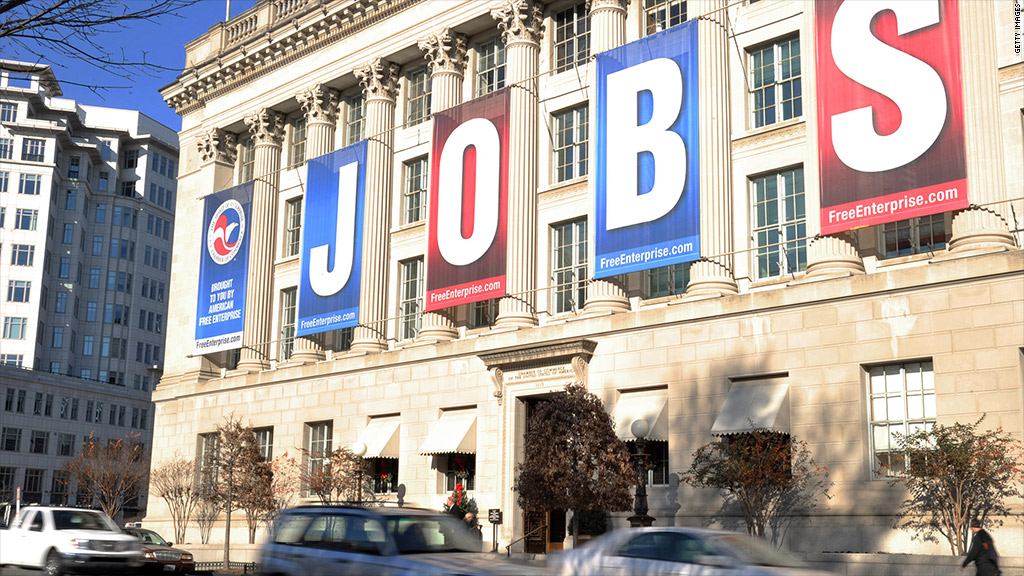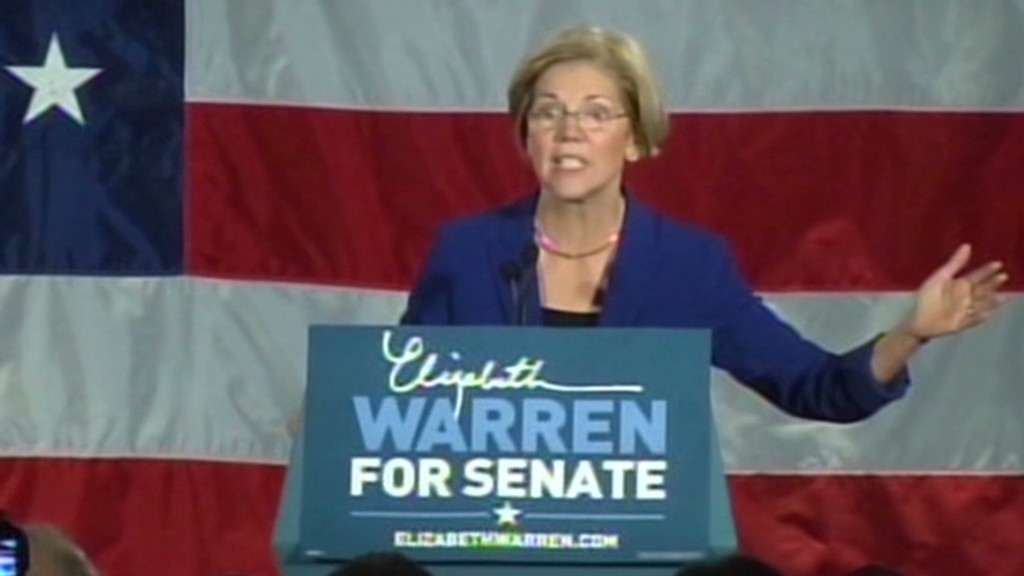
Most of the $36 million that the U.S. Chamber of Commerce spent on its pro-business agenda this election went down the drain.
According to federal records compiled by the Center for Responsive Politics, a watchdog group, $29 million of the money was spent in races that the Chamber's favored candidate lost.
In 15 U.S. Senate races, the Chamber spent $24 million. Only two went the group's way: the victories of Republican senators Dean Heller of Nevada and Orrin Hatch of Utah, whose race wasn't very competitive. In seven races, the chamber spent between $1 million and $4 million each to defeat Democrats, and lost them all.
In the House, the Chamber did better, but not much. Of the $5.1 million spent to influence some 22 House races, only five went their way. In 10 of those races, the chamber spent between $300,000 and $500,000 opposing Democrats -- mostly from Illinois, California and New York -- all of whom won.
Related: Obama win boosts chances for tax hike on rich
For its part, the chamber was mum on its 2012 election losses. It issued a statement from Chamber CEO Thomas Donohue praising its work, saying the group ran the "largest voter education, candidate endorsement and Get-Out-the-Vote effort in our 100-year history."
Donohue said the chamber aimed to "defend the pro-business gains we made in Congress in 2010," and that goal "was achieved." The statement didn't explain the achievement, but is likely referring to how Republicans retained control of the House.
"We had also hoped to advance the pro-business position in the Senate, but the results were disappointing," he added.
The Chamber is one of the largest interest groups spending money on federal races and a longtime Washington powerhouse. Each year, the chamber spends millions lobbying Congress.
Over the past eight years, the Chamber has played a bigger role pushing to elect more business-friendly candidates, who tend to be Republican -- just as labor unions push to elect more worker-friendly candidates, who tend to be Democrats.
In 2010, the first election after a Supreme Court decision made it easier for companies to spend unlimited amounts of money, the chamber spent $32.8 million.
"They've become major players," said Stuart Rothenberg, editor and publisher of the Rothenberg Political Report. "They were very successful when Republicans were successful last year and less successful this year when Democrats were successful."

Because of some changes in the interpretation of election laws, this was the first major year that the chamber produced television ads telling voters directly to vote against or vote for certain candidates.
The trade association does not have identify the companies that contribute to its causes, although individual companies sometimes disclose their dues in public filings. An October report by the watchdog group Public Citizen revealed that companies such as Merck (MKGAY), Dow Chemical, (DOW) Prudential (PRU) and Aetna (AET) all paid between $725,000 and $4.1 million in dues to the Chamber.
Rothenberg suggested the chamber might have a tougher time getting face time on Capitol Hill with some officials they tried to beat.
"Elections have consequences and contribution decisions have consequences," Rothenberg said. "Now that those people are in, it'll be harder for the chamber to work with them."


